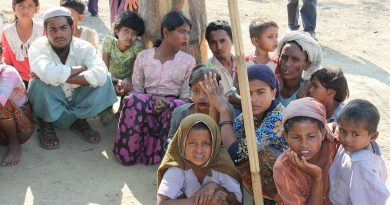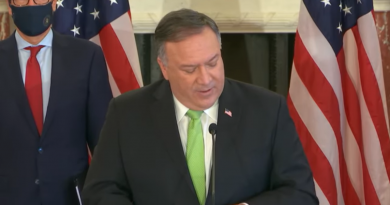Russia Keeps Control in Crimea
By Matthew Schaller
Staff Writer
On the eve of the one year anniversary of the Crimean referendum which paved the way for Russian annexation, officials from Moscow and Crimea gathered in the peninsula for a panel discussion on how this “reunification” changed the face of the region. According to the International Business Times, participants of this roundtable had nothing but positive things to say about the so called “Crimean Spring.”
“If not for the Russian unity, the powerful will of Crimea population to live in Russia, there would have never been the reconciliation,” said Russian Public Chamber Deputy Sergei Markov, a participant at the forum. However, even though a vast majority of the Russian population, in the homeland and in Crimea, support the move by Russian President Vladimir Putin, many issues still linger.
According to a recent poll in March 2015 conducted by Levada, a Russian NGO, respondents gave divergent views when asked if they were personally prepared to shoulder the cost of annexation. As stated by Carnegie Europe, despite the integration of Crimea into the Russian state costing Moscow $2 billion annually in subsidies and transfer payments, the continued conflict in Eastern Ukraine gives the Russian military easier access to the region. Through a mixture of militarization and nationalization of the main companies on the peninsula, Russia has been able to exert firm control over this promontory.
However, even with their presence being solidified, Crimea’s appearance on the international scene is one of continued isolation, as international companies and certain sectors of the economy continue to suffer from the annexation and crippling Western sanctions.
“We are cut from the rest of the world. What’s the point of having a business here if you can’t receive the money from it?” Nikolai, a businessman from the city of Sevastopol, told NBC News. In addition to notable international companies like McDonalds and Amazon closing their doors, numerous other sectors of this once economic hotspot have not fared much better.
Crimea was once the host of a bustling IT industry that is now desolate, as most have been forced to relocate because of crippling sanctions. In addition, the tourism industry has nearly tanked owing to the Ukrainian authorities halting all trains to Crimea, along with airport and ferry lines being oversubscribed, Newsweek reports.
According to Reuters, the peninsula has also struggled agriculturally in the form of numerous water shortages and the rise of local food prices, owing to Russia’s continued economic crisis. However, steps have been taken in recent months to deal with this issue, including Russian banks helping with domestic money transfers and a pledge by Arkady Rotenberg, an associate of Putin, to build a bridge to the mainland to be completed by 2018. Nevertheless, for Crimea to fully come out of isolation from the international scene means to also eliminate the repressive measures that have been committed against the marginalized Crimean Tatar population.
While the small Tatar settlement in Crimea never enjoyed the full support of the pro-Western government in Kiev, the Tatars still remain a reliable ally in the pro-Western electoral bloc. According to New Republic, Russian authorities raided the Tatar parliament, banned public commemorations of Tatar deportations, and exiled two Tatar political figures. People associated with the Tatars’ political party, the Mejlis, have either vanished or been arrested. These points are likely to continue, as long as Crimea continues to be ruled by Russia.
With regards to the international scene, numerous events have pulled the world’s attention away from Crimea. Recent negotiations on Ukraine have not even discussed the annexation. The fate of this land is unknown, as long as the occupation of Crimea continues to persist without any reaction from Western countries.


